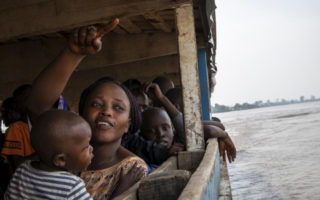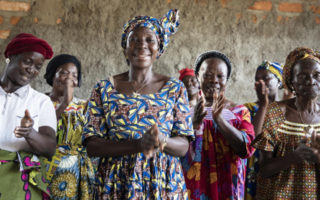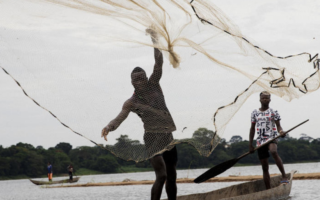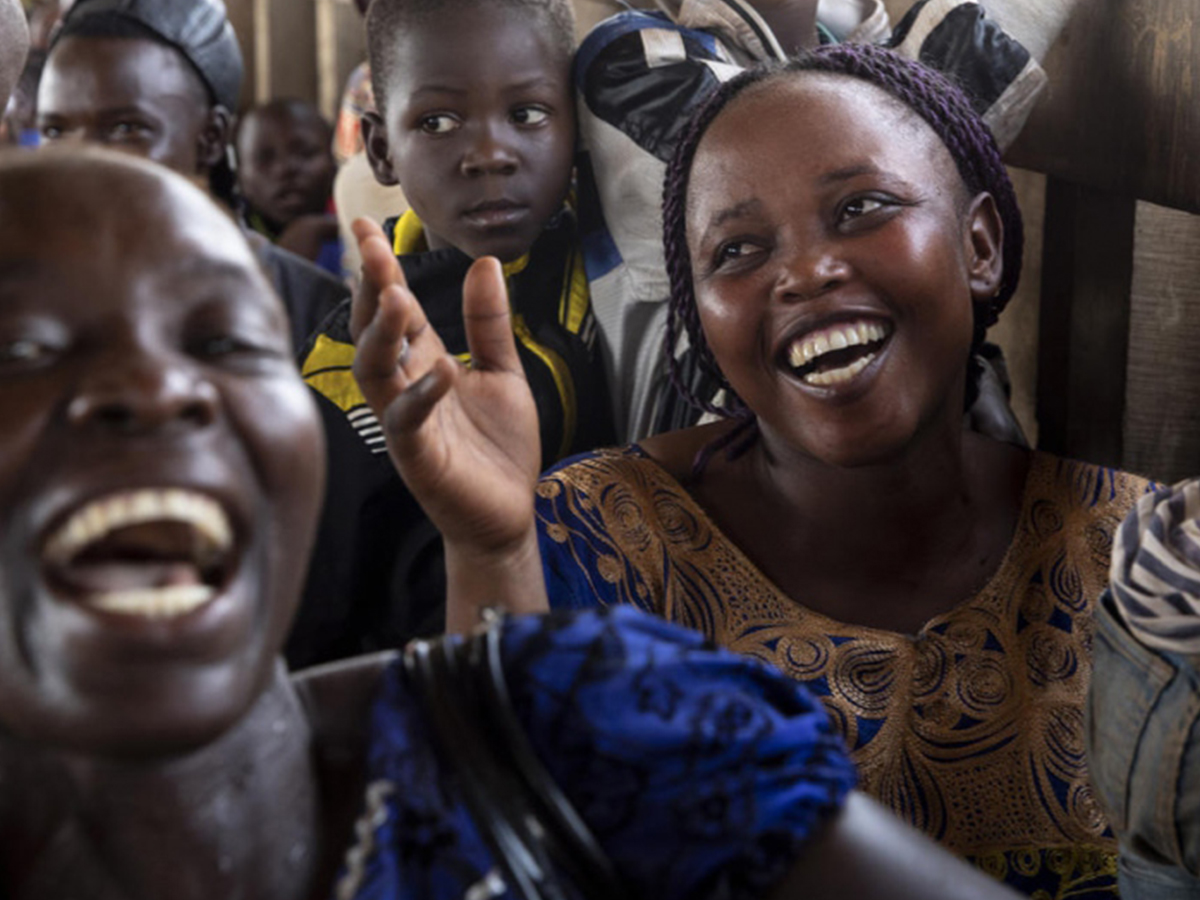
Guilaine Alaya (right), sings with joy onboard a boat to Bangui, the capital of the Central African Republic after six years of exile. © UNHCR/Adrienne Surprenant
Hundreds of Central Africans head back to their homeland after years in exile in the Democratic Republic of Congo.
By Clarise Neh Mokom Achu in Bangui, Central African Republic and Catherine Wachiaya in Nairobi, Kenya
As a boat carrying hundreds of Central African refugees returning from the Democratic Republic of the Congo approaches the port of Bangui, the air is filled with laughter and singing.
Their excitement is palpable as they look towards the shoreline, eager to set foot on their country’s soil, which they have not seen for six to seven years since fleeing conflict.
Guilaine Alaya, 33, points excitedly towards the capital as she hugs her young son by her side. Away since 2013, she and her husband Serge are glad to return home.
“We heard there was peace now and we prefer to return and work for our country,” she says happily.
UNHCR, the UN Refugee Agency, helped hundreds of refugees living in DRC to return home on 21 November, launching the first-ever voluntary repatriation programme for around 172,000 people forcibly displaced from the Central African Republic (CAR) since 2013.
Some 400 refugees and their belongings left in a convoy of trucks and light vehicles from Mole refugee camp to Zongo in South Ubangi Province in northern DRC. They then continued their journey by boat to the capital Bangui.
“I am proud to be back home.”
The start of the voluntary repatriation programme follows a tripartite agreement signed by UNHCR and the governments of DRC and CAR in July 2019.
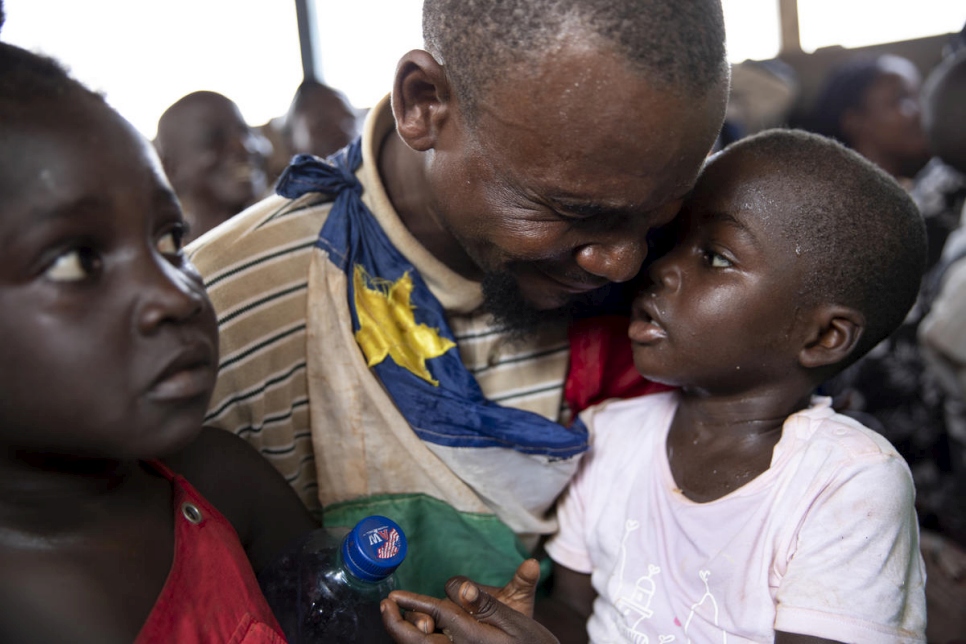
Alain Kossi holds his child close as he is overcome with emotion as he returns home to the Central African Republic after six years of exile in the Democratic Republic of the Congo. © UNHCR/Adrienne Surprenant
Mole and Boyabu camps have some 32,000 Central African refugees, of whom 4,000 have signed up for voluntary repatriation. UNHCR plans to assist some 25,000 people by the end of 2020 through the programme.
Those returning receive a return package that includes some money and basic household items to assist with restarting life back in CAR, including food rations to last the first three months.
Refugees are returning to areas in Bangui and in the regions of Lobaye, Ombella M’poko, la Kemo, Nana Mambere, Mambere Kadei and Sangha-Mbaere, where the security situation has improved over the past two years.
As he sets foot on shore after six years away, Alain Kossi, 35, falls to the ground. Overwhelmed, he bursts into tears of joy, holding his child close.
“The president asked for all Central Africans to come back home,” says the father of seven. “I am proud to be back home.”
Originally published on UNHCR on 22 November 2019



